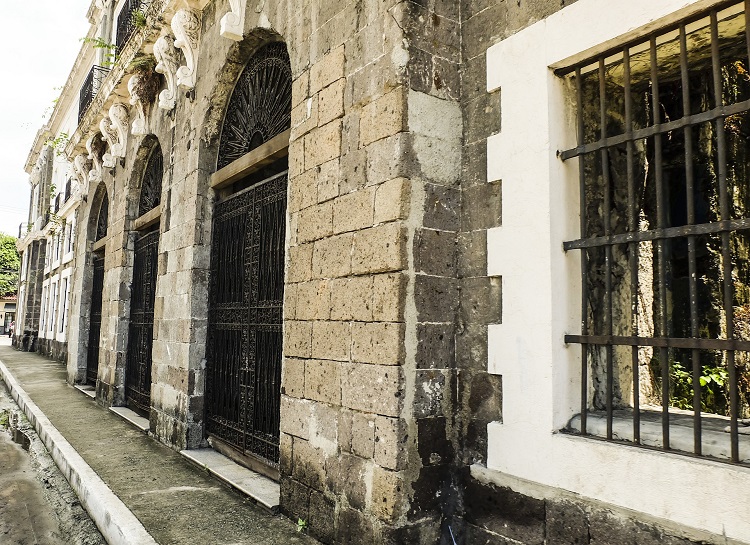Be warned, these chapters are heavy with very little relief even from the perpetually ludicrous Doña Victorina. Ibarra is irreversibly doomed, and the last of the skeletons are finally out of the closet as Maria Clara reveals her family history. Despite Ibarra’s frustrating lack of guile, he deserves some tears of sympathy here.

Chapter 56: Rumors and Beliefs
Townspeople swap conjectures surrounding the disturbance of the previous night. One theory suggests it was the doing of old Pablo and his gang, another points to the Chinese rebelling, and yet another presents the possibility that the local police fought with the civil guards. One other version of the story involves a supposedly incensed Ibarra attempting to kidnap Maria Clara, but was thwarted by Capitan Tiago and the civil guards. Ibarra and Don Filipo are now under arrest.
Meanwhile, a maidservant discovers Lucas’ body hanging from a tree and the townspeople gather around him. A disguised Elias inspects the body, and he notices amores secos[1] on Lucas’ clothes. Later at the sacristy, he chances upon the senior sacristan sleeping, and notices amores secos too on his clothes.
Chapter 57: Woe to the Vanquished
The alferez questions the captured Tarsilo about Ibarra’s involvement in the attack on the barracks. Tarsilo asserts that he had never spoken to Ibarra and that his actions were motivated by the desire to avenge his father who had died at the hands of the civil guards.
The alferez orders his men to whip, flog, and then lower Tarsilo upside down into a dirty well in an attempt to extract a confession, but Tarsilo says nothing more and dies.
Chapter 58: The Accursed
The families of the men arrested for the attack on the barracks run about in despair, lamenting the fate of their loved ones. Their anguish intensifies as the prisoners are led out for transport to the capital, but their sorrows quickly transforms into anger at the sight of Ibarra, whom they blame for their misfortune. They begin to throw stones at him, but it is the sight of the ruins of his home and recollections of his happy childhood that finally bring him to tears.
From afar, the sick Tasio looks on, lost in thought. The next day, he is found dead on the threshold of his home.
Chapter 59: Country and Private Interests
News of the incident in San Diego reaches Manila, and an undercurrent of disquiet runs through some private homes and in convents. In one convent, the friars give thanks for the demonstration of the usefulness of religious orders, as the prompt action of Padre Salvi thwarted the attack. In another convent, they remark on how dissidents like Ibarra come from the Ateneo, and deplore how the Jesuits are corrupting the youth.
At Capitan Tinong’s house, he and his wife, Capitana Tinchang argue over whose fault it is that he befriended Capitan Tiago and invited Ibarra to dine, thereby increasing his chances of being implicated. Their cousin, Don Primitivo arrives and burns Capitan Tinong’s papers, letters and books to protect him. He instructs Capitana Tinchang to present the Captain-General with a gold ring as a present.
Later, over at the Intramuros[2], some people surmise that Capitana Tinchang’s gift is a sign of guilt. In the evening, Capitan Tinong and a number of other residents are taken to Fort Santiago.[3]
Chapter 60: Maria Clara Weds
Capitan Tiago congratulates himself for having escaped investigation by denying all his Filipino friends suspected by the government. He discusses the details of Maria Clara’s impending marriage to Linares with Doña Victorina.
The following evening, Capitan Tiago throws a party to celebrate the betrothal. Maria Clara overhears Lieutenant Guevara say that Ibarra would have been acquitted if not for a letter he had written to a woman produced in court. The prosecutor interpreted some ambiguous lines in the letter as a threat to the government. Guevara later privately tells Maria Clara that giving up the letter would ensure an untroubled future for her.
Later in the night, a sorrowful Maria goes to the azotea where she encounters Ibarra who had been rescued from prison by Elias. Ibarra forgives Maria for her treachery and bids her farewell, but she detains him to explain her actions. She had been compelled to exchange his letter for letters her mother had written to her real father. From her story it is clear Padre Damaso is her real father and that the man who had taken her letter was Padre Salvi. The two reconcile and Maria Clara kisses Ibarra and bids him goodbye.
Notes:
1. Also known as amor seco, a type of grass with spikelets that stick to clothes.
2. During the Spanish colonial period, Intramuros was the Walled City of Manila and was the administrative, political, religious and economic center of the colonial government.
3. Fort Santiago is a defensive fortification in Intramuros and was where some prisoners were kept.
Recent Comments